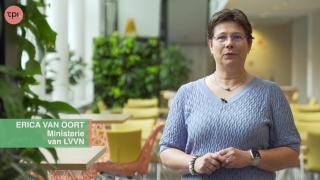Monique Janssens: Why we need the Transition towards Animal-free Innovations
Why is there a Transition towards Animal-free Innovations, while we have the 3Rs, including Replacement? Well, there is a difference. Animal experiments should no longer be the golden standard of reference. We should not ask: Is this animal-free method good enough to replace animal experiments? But: What is the research question, and how do I get the best answer, preferably without animals? I know that many researchers are doing this already. But we can do even more! It’s also about involving the full chain of parties, including patients, financers, legislators and companies. That is why the transition movement works with interdisciplinary networks and Helpathons. The transition helps to innovate, to accelerate and to implement. At the same time, there is no need to throw the 3Rs overboard. Actually, we owe applying them to the lab animals of today. But by innovating we can develop even more new practices in research and education that bring about better results for science in less time and often with less costs. Without using animals.
New

Helpathon #12 – Can you help Erica?

The NAM Navigator: A unique repository for information on the validation and acceptance of New Approach Methodologies
